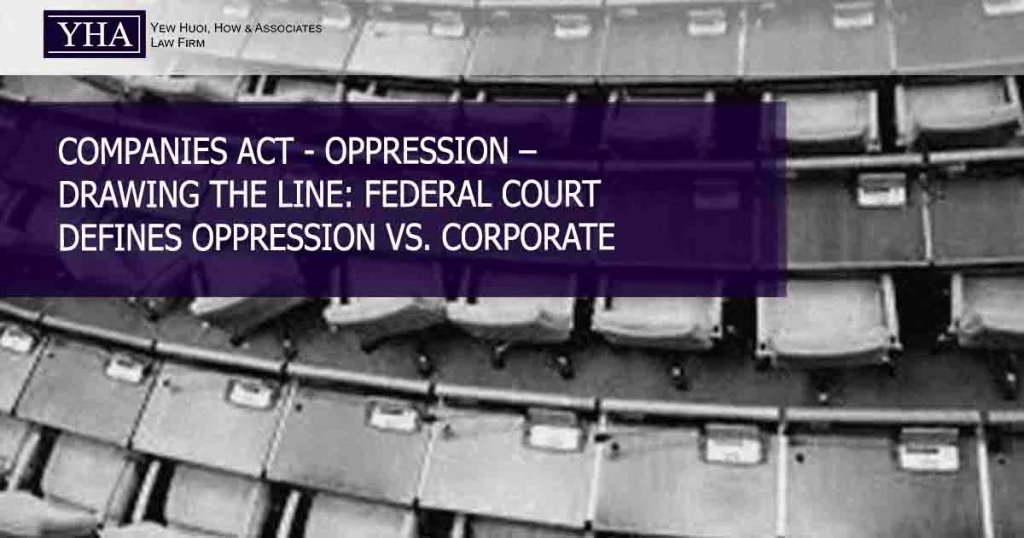Summary and Facts
A, a 50% shareholder, had been uninvolved in the company’s management for years. Meanwhile, B (the chairman) and C (a director) ran the business. The company owned valuable trademarks central to its operations, but in 2018, B secretly transferred these trademarks to D, a competing company tied to B and his daughter, for just RM10. The transfer lacked board approval and blindsided A.
Feeling sidelined and harmed, A filed an oppression action under Section 346, claiming that B’s actions were unfair and disregarded her rights as a shareholder. She sought a buyout of her shares. B and C countered, arguing the harm was corporate, affecting the company and all shareholders equally, and should be pursued as a derivative action under Section 347.
Legal Issues
- Whether the harm was personal or corporate?
- Whether the action should have been an oppression or derivative action?
- Whether reflective loss barred the claim?
Court Findings
- The Federal Court found that the wrongful transfer of trademarks caused harm to the company as a whole, not to A personally. The injury was shared equally by all shareholders, making it a corporate injury rather than personal oppression.
- A incorrectly pursued an oppression action under Section 346. The appropriate remedy for corporate harm was a derivative action under Section 347, as the company, not A, was the proper plaintiff.
- A’s claims of reduced share value and lost dividends constituted reflective loss, arising from harm to the company. Such claims cannot form the basis for an oppression action.

